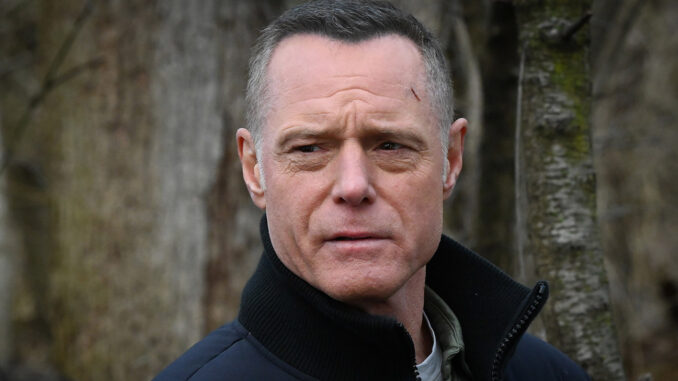
Turn on your TV. No, seriously. Drop everything. The hum of the standby light, the gentle click as the screen flickers to life, the familiar network logo – it’s all prologue. Because right now, the digital airwaves, or perhaps the streaming ether, are alight with something that demands your immediate, undivided attention: Chicago P.D. season 13. Episode one. Right now.
The urgency isn’t a marketing gimmick; it’s a visceral call to engagement. Chicago P.D., particularly after a dozen seasons, isn’t just a show; it’s a living, breathing chronicle of urban grit, moral ambiguity, and the relentless pursuit of justice in a city that often feels like a character unto itself. To tune in for season 13 isn’t merely to watch; it’s to rejoin a family, albeit a dysfunctional, perpetually embattled one, where every glance, every strained silence, every explosive confrontation carries the weight of a decade’s worth of shared history.
Imagine that first shot: not a grand, sweeping city skyline, but the close-up of a familiar face. Perhaps Hank Voight, his eyes, those deep wells of cynicism and unwavering loyalty, scanning a crime scene. Or Kevin Atwater, his ethical compass often the truest north in the unit, grappling with a community torn by systemic issues. Or Kim Burgess, her journey from patrol officer to seasoned detective etched onto her features, now facing a new, personal challenge. The tension is immediate, the stakes palpable. The writers, after so many years, know their audience, know their characters, and know exactly how to pull you back into the turbulent waters of Intelligence.
And as the credits roll on that first episode, the imperative shifts from merely watching to something more analytical, more personal: “Notes on each episode md07.” This isn’t just about logging plot points or character arcs. “md07” isn’t a random file name; it’s a shorthand for my detailed observations, module 07 – a personal framework for dissecting the layered storytelling. It’s about moving beyond passive consumption to active deconstruction.
Episode one of season 13, for instance, might throw us into a scenario that feels terrifyingly ripped from today’s headlines. A complex web of local politics intersecting with organized crime, or a heart-wrenching case of youth violence that forces the team to confront their own biases and limitations. My notes for this imagined episode would delve deeper:
- md07.s13e01.01_EthicalDilemma: Voight’s latest ‘gray area’ decision. Does it still resonate, or does it feel like a retread? How does Atwater react? What are the long-term implications for the unit’s integrity?
- md07.s13e01.02_CharacterArc: Burgess’s growth. Is she hardened, or has she found new reserves of empathy? How does her role as a mother inform her approach to this particular case?
- md07.s13e01.03_SocialCommentary: What specific societal issue is being highlighted? Is it handled with nuance, or does it feel preachy? Does it contribute to the ongoing dialogue about policing in America?
- md07.s13e01.04_Pacing&Direction: The opening sequence – effective? The interrogation scene – tension built via dialogue or performance? The final chase – does it feel earned or gratuitous?
- md07.s13e01.05_UnansweredQuestions: What seeds were planted for future episodes? A new adversary? A personal struggle for one of the team? A lingering sense of injustice?
This level of detail isn’t just for an academic exercise; it’s because Chicago P.D., at its best, demands it. It’s a show that often mirrors the uncomfortable truths of our world, forcing viewers to confront difficult questions about justice, morality, and the human condition. After thirteen seasons, the characters are like old friends, their flaws and triumphs intimately known. Each episode, therefore, becomes a conversation with these friends, a debate about their choices, a reflection on our own.
So, yes, turn on your TV. Right now. Because watching Chicago P.D. season 13 isn’t just about entertainment; it’s about engaging with a narrative tapestry woven over years, about grappling with the complexities of law and order, and about finding your own “md07” to capture the indelible mark each story leaves behind. The show, in its enduring run, becomes a mirror, reflecting our own society, and these notes are the detailed observations of what we see reflected back. Don’t miss a single, crucial moment.
